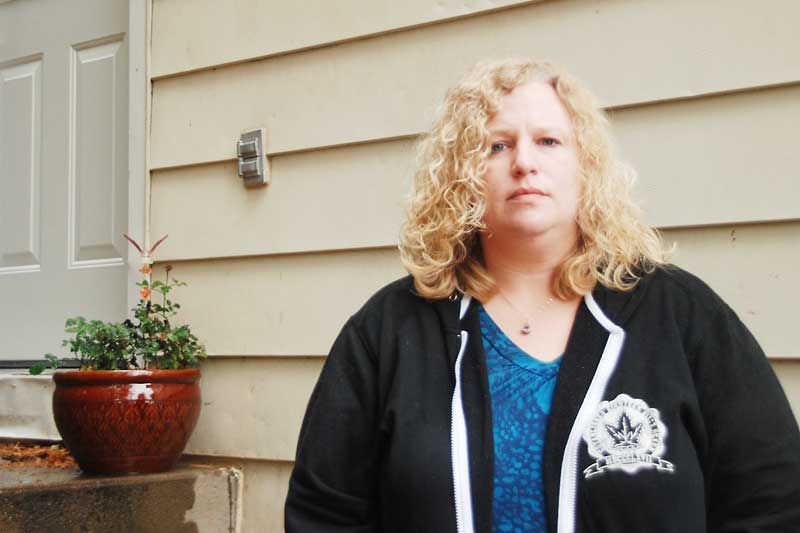Jeff Green | Oct 22, 2014
Danielle Pollard and her young daughter live in a subsidised rental house in Kaladar that is provided by Ontario Aboriginal Housing Services, an agency that is based in Sault Ste. Marie, and has rental properties throughout the province.
That is, she lived in the house until late September when she found that the air in the house had taken on a sour, moldy smell, and found that some of the walls of the house, all her furniture and other possessions were covered in a light grey mold. She is now staying with her mother and ailing father at their small home in Northbrook.
When I met her at the house last week, it appeared spotlessly clean inside because much of the mold had been washed off, but it persisted on the beds and some other spots. However, the smell of mold was immediately apparent as soon as I entered the house.
“Part of my frustration comes from the fact that I moved to this house because I had to leave the previous Aboriginal Services house that I lived in in Northbrook, because the mold in the basement was so bad it made the house unliveable and ruined half of my furniture,” Pollard said. “So I moved in here, and they told me the house was mold free but it isn't anymore.”
“What I want to know is whether the house is safe to live in and whether I can clean some of my furniture or does it all have to go,” she said.
Matt Doyle of the Kingston Frontenac Public Health Unit did an inspection of the house and in his letter of opinion he said any materials in the house that are porous and can not go through a washing machine, need to be replaced.
That would include the couch and chairs and almost all of the furniture, which is made of wood.
Pollard said that repeated requests for service to Aboriginal Housing Services have only resulted in inspections, but the results of those inspections have not been shared with her and no commitment to a remedy has been made.
“I've now been out of the house for almost a month, and I don't see that changing,” said Pollard, “and if I do have to replace all my furniture - how I am going to replace it?” she said.
An air quality test was ordered by Aboriginal Housing and was done early last week at the house, and last weekend an inspection was done by the Ministry of Housing Inspection and Enforcement Board on Pollard's request.
Results of those tests should have been delivered to the regional office of Aboriginal Housing in Peterborough, but calls from Pollard and a subsequent call on Tuesday by the Frontenac News have not been answered.
This is not the first time mold has been an issue in the house. According to Mike Powley, the Kaladar waste site attendant, the furniture and other possessions of the previous tenant in the building ended up in landfill because “they were covered in grey mold.”
Ontario Aboriginal Housing operates nine units in Addington Highlands, 13 in North Frontenac, 19 in Central Frontenac, four in South Frontenac, nine in Stone Mills, and 13 in Lanark Highlands.
More Stories
- Province clarifies stance - Says Private Well Water Testing Will Continue
- Frontenac County Stays Internal for CAO - Appoints Kevin Farrell
- Addington Highlands Tax Bill Going Up 6.93%
- Perth Road United Church Donation to The Grace Centre
- 21 Years Of Dump Life Left At South Frontenac Waste Site
- Eclipse 2024 – Once In A Lifetime
- National Tourism Week
- NeLL Spring Open House and Anniversary Concert
- 25 years at Bishop Lake Outdoor Centre
- Grounds Contracts Down, Custodial Contracts Up In Central Frontenac

